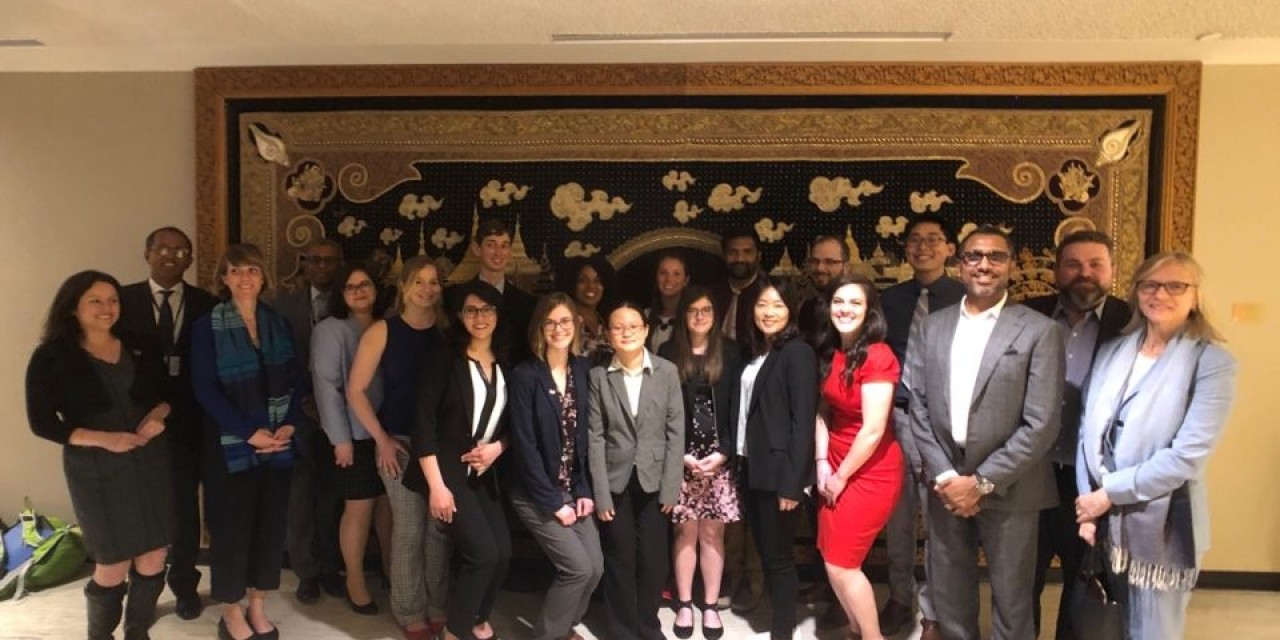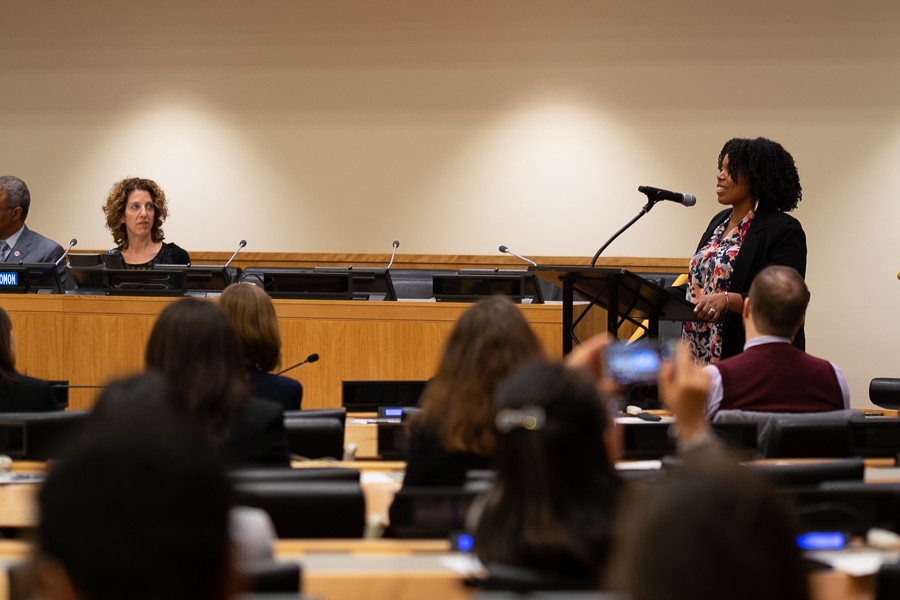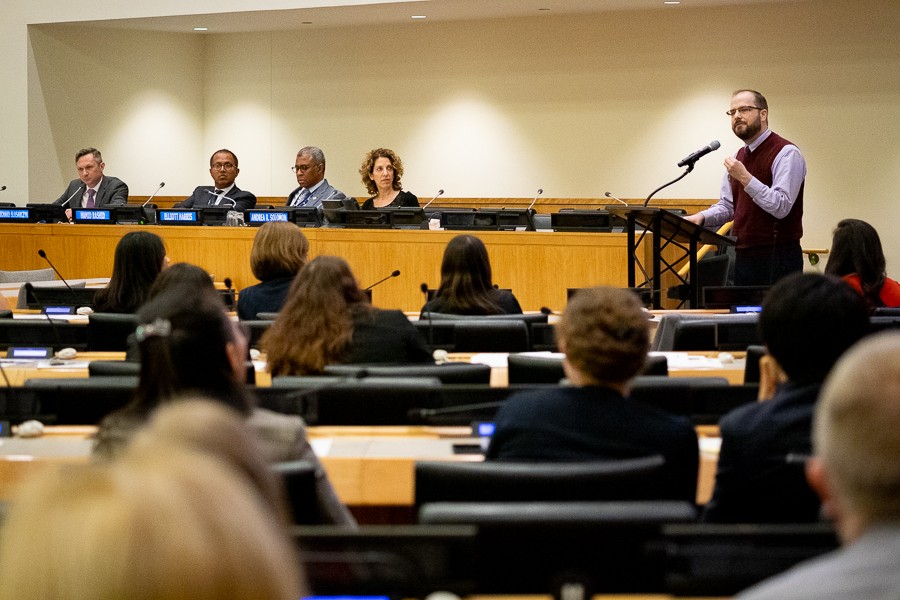PhD Students Across the Ivy League Presented Their Work at the Ivy 3MT Competition

On April 25, GSAS and the United Nations celebrated scholarly achievements of PhD students across the Ivy League by hosting the inaugural Ivy 3MT Competition. Finalists from Brown University, Cornell University, Dartmouth College, Princeton University, University of Pennsylvania, and Yale University joined Columbia’s finalists, presenting their dissertation research in three minutes to a non-specialist audience using only one slide. The audience of more than 200 people was composed of United Nations staff, faculty and students from participating institutions, and friends and family of the finalists.
Finalists demonstrated a range of skills including critical thinking, data visualization, and written and oral communications. The winners were chosen by a panel of judges as well as by audience votes. This competition was modeled after the University of Queensland’s Three Minute Thesis (3MT), an international competition in which more than 600 institutions participate.

Bailey Brown, a Sociology candidate at GSAS, won the Audience Choice Award for her presentation, titled “Kinder Panic: School Selection and Parental Uncertainty.” Brown discussed her research on parental anxiety over public school options for their children and the way parents’ decisions about their children’s kindergartens may result in long-lasting, unintended consequences. For instance, decisions over kindergarten can shape how students are tracked throughout their school years and perpetuate disparities between the rich and the poor.
Brown found participation in the 3MT competition helpful because “it provided the ideal avenue for me to quickly distill key objectives from my dissertation for an interdisciplinary audience.” Brown adds, “The competition has [also] helped me prepare more engaging and thought-provoking presentations for workshops and conferences.”

The second Columbia GSAS finalist who participated, Sean O’Neil, is a History candidate who spoke on “The Art of Signs: Symbolic Notation and Visual Thinking in Early Modern Europe.” He shared his research on symbols and visual thinking among early modern people, explaining that symbols unsettled some because they evoked mysticism. As more people recognized the value of visual thinking, they became accustomed to the advantages of visual thinking with symbols and visual thinking in general, which has helped to circulate new knowledge.
O’Neil says that preparing for the competition was useful not only because it pushed him to describe his work to a non-specialist audience, “but also because the very process of doing so clarified my own thinking to myself. The competition itself proved to be a wonderful opportunity to learn more about my colleagues’ projects in other fields—projects I probably would never have learned about any other way.”
The first-place winner was Mehraveh Salehi, an Electrical Engineering PhD candidate at Yale, for her presentation titled “Individualized and Task-Specific Functional Brain Mapping.” The second-place winner was Hannah Shoenhard, a Neuroscience PhD candidate at the University of Pennsylvania, for her presentation titled “Linking Genes to Brain in Sensation and Decision-Making.” The first-prize winner was awarded $1,000, and the second-prize winner was awarded $500. Bailey Brown, winner of the Audience Choice Award, was awarded $300.
The judges were Salim Hasham, Partner, McKinsey & Company; Mariangela Parra-Lancourt, Senior Economic Affairs Officer, United Nations Department of Economic and Social Affairs; Laurel Patterson, Team Leader, SDG Integration, United Nations Development Programme; Alex Sarian, Acting Executive Director, Lincoln Center Education, Lincoln Center for the Performing Arts; and Mariët Westermann, Executive Vice President for Programs and Research, The Andrew W. Mellon Foundation.
